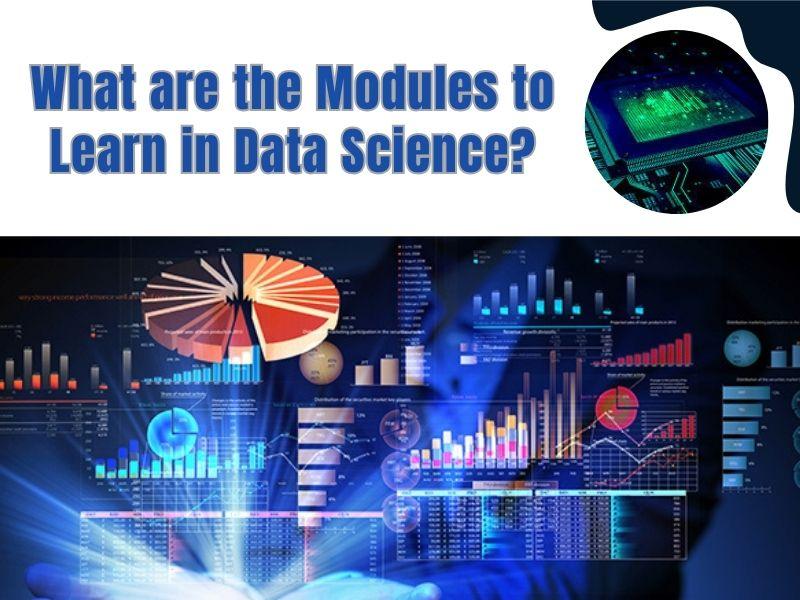What are the Modules to Learn in Data Science?

In data science, there are several key modules or areas of study that individuals typically focus on to acquire a comprehensive understanding of the field. If you want to learn more about Data Science we can help you by applying from here Best Data Science Course Online. These modules cover various aspects of data science, including data acquisition, data preprocessing, exploratory data analysis, machine learning, and data visualization. Here are the essential modules to learn in data science:
Programming Fundamentals
Python or R
Learn one or both of these programming languages, which are widely used in data science for data manipulation, analysis, and visualization.
Mathematics and Statistics
Linear Algebra
Understand concepts such as vectors, matrices, and linear transformations, which are foundational for many machine learning algorithms.
Probability and Statistics
Learn basic probability theory, statistical distributions, hypothesis testing, and regression analysis.
Data Manipulation and Preprocessing
Data Cleaning
Learn techniques for handling missing values, outliers, and inconsistencies in data.
Data Wrangling
Acquire skills for transforming and reshaping data using libraries like pandas (Python) or dplyr (R).
Exploratory Data Analysis (EDA)
Data Visualization
Explore data visually using libraries like matplotlib, seaborn (Python), ggplot2 (R), or Plotly.
Descriptive Statistics
Analyze data distributions, correlations, and summary statistics to gain insights into the dataset.
Machine Learning
Supervised Learning
Understand algorithms for classification and regression tasks, such as linear regression, logistic regression, decision trees, and ensemble methods.
Unsupervised Learning
Learn clustering algorithms (e.g., K-means, hierarchical clustering) and dimensionality reduction techniques (e.g., PCA, t-SNE).
Model Evaluation and Validation
Master techniques for evaluating model performance, including cross-validation, hyperparameter tuning, and model selection.
Deep Learning (Optional)
Neural Networks
Explore deep learning concepts, architectures, and frameworks (e.g., TensorFlow, PyTorch) for tasks such as image recognition, natural language processing, and reinforcement learning.
Big Data Technologies (Optional)
Hadoop and Spark
Familiarize yourself with distributed computing frameworks for processing and analyzing large-scale datasets.
Deployment and Productionization (Optional)
Model Deployment
Learn how to deploy machine learning models into production environments using platforms like Flask (Python) or Shiny (R).
Scalability and Performance
Understand considerations for scaling machine learning systems and optimizing performance in production.
Domain Knowledge (Industry-specific)
Gain domain expertise in a particular industry or application area (e.g., healthcare, finance, e-commerce) to better understand the context and requirements of data science projects.
By mastering these modules, aspiring data scientists can develop a solid foundation in data science principles, techniques, and tools, allowing them to tackle real-world data challenges effectively.
- Art
- Causes
- Crafts
- Dance
- Drinks
- Film
- Fitness
- Food
- الألعاب
- Gardening
- Health
- الرئيسية
- Literature
- Music
- Networking
- أخرى
- Party
- Religion
- Shopping
- Sports
- Theater
- Wellness
- IT, Cloud, Software and Technology


